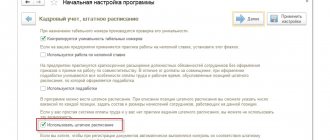Fundamental Principles
General requirements for the execution and subject of the contract are regulated by Ch. 7 labor legislation of the Russian Federation. Based on the standards of the Labor Code of the Russian Federation, the collective agreement should disclose the following provisions:
- wages (its amount, form, payment of bonuses, salary increases based on inflation, etc.)
assignment of compensation and benefits- social guarantees for workers, benefits for them
- workers' education
- working hours and time for rest (being on vacation)
- provisions on labor protection (including for women bearing a child and raising young children)
- execution of the agreement, procedure for making adjustments
- powers and responsibilities of participants, other provisions
Employer's liability
Unfortunately, current legislation provides for liability only for the employer and his representatives. That is, if the employer avoids participating in negotiations on the conclusion, amendment or addition of a collective agreement or delays the negotiations, Art. 5.28 of the Administrative Code of the Russian Federation for such actions provides for liability in the form of an administrative fine from 1,000 to 3,000 rubles. An employer can be punished with the same fine for failure to provide information required for collective bargaining within the prescribed period ( Article 5.29 of the Code of Administrative Offenses of the Russian Federation ). And if the employer or his representative completely refuses to make changes to the collective agreement, sanctions are possible under Art. 5.30 Code of Administrative Offenses of the Russian Federation – fine from 3,000 to 5,000 rubles.
In addition to administrative liability, the employer may bear financial liability if it does not comply with the procedure for amending the collective agreement. There is plenty of evidence of this in judicial practice.
B. filed a claim with the Nadym City Court against the LLC to recover payment for travel to and from the vacation spot for 2010–2011 and financial assistance for recovery. In support of the claim, B. indicated that, according to the provisions of the collective agreement of the LLC, the employer is obliged to annually pay the employee and his dependent family members for travel to and from the place of vacation, as well as to provide annual financial assistance for health improvement before the vacation. In 2010 - 2011, upon returning from vacation, B. handed over to the employer advance reports on travel expenses to and from the place of vacation for herself and her minor child, with the necessary documents attached, but the defendant did not compensate her for travel expenses incurred and did not pay financial assistance for recovery.
The representative of the LLC did not admit the claims and explained that the payments required by the plaintiff are indeed provided for by the collective agreement if the company has the financial and economic capabilities, however, due to the difficult financial situation at the enterprise, the payment of these social compensations has been suspended since the second quarter of 2010.
The city court refused to satisfy B.'s demands for financial assistance, and collected expenses for travel to the place of rest. Disagreeing with this court decision, B. filed an appeal.
Having studied the case materials, the judicial panel of the appellate instance considered that the earlier court decision was subject to cancellation and here’s why.
Clause 7.2.1 of the collective agreement of the LLC for 2010 - 2012 provides for the payment by the employer of expenses incurred by the employee for travel to and from the place of vacation by any type of transport. In addition, the employer pays the cost of travel to family members who are dependent on the employee. Clause 7.1.1 of the collective agreement provides for the employer’s obligation to provide financial assistance for the recovery of annual leave to employees who have worked for at least two years in this organization. The section “Terms of remuneration” (clause 4.4) of the employment contract concluded by the defendant with the plaintiff provides for the payment of financial assistance to the employee for health leave.
The city court's conclusion regarding the legality of the suspension of social benefits provided for by the collective agreement for vacations due to the difficult financial situation of the LLC is based on an incorrect interpretation of labor legislation. The appellate court justified its position as follows.
In accordance with Art. 44 of the Labor Code of the Russian Federation, changes and additions to the collective agreement are made in the manner established by the Labor Code of the Russian Federation for its conclusion, or in the manner established by the collective agreement. This procedure is not established by the collective agreement; the commission for regulating social and labor relations is not vested with the authority to change the collective agreement. In this regard, changes to the collective agreement of the LLC, including regarding the temporary suspension of certain clauses of the collective agreement, could be made in the order in which the collective agreement was adopted - at a conference of the labor collective.
The LLC did not provide evidence indicating that changes were made to the collective agreement in the manner prescribed by law, therefore, the arguments of the appeal about the illegality and unfoundedness of the defendant’s suspension of social payments are justified.
Under such circumstances, the decision of the court of first instance regarding the refusal to satisfy the claims for recovery of financial assistance for rehabilitation is subject to cancellation, and B.’s claims are subject to satisfaction (Appeal ruling of the court of the Yamalo-Nenets Autonomous District dated 06/04/2012 in case No. 33-1136/ 2012).
Order to make adjustments
Amendments to the collective agreement must be accompanied by the formation of an order from management. It contains the following information:
- name of the business entity
- collective agreement details
- list of persons who participated in the commission when discussing adjustments
- circumstances that gave rise to adjustments are indicated
- innovations introduced into the agreement
- principles for the entry into force of the amended clauses of the collective agreement
How to write this order
There is no unified form of the document. It is drawn up freely, like all orders of the company.
So, what information needs to be placed in the document:
- Full and short name of the company.
- Name and number of the document.
- Place and date of its compilation.
- The essence of the document (about making changes...).
- Grounds for issuing the order. Here you need to indicate the details of the document in which it was decided to change the collective agreement.
- What exactly needs to be changed in the collective agreement.
- Who is responsible for monitoring the execution of the order? This is usually the head of the HR department.
- Signature of the head of the organization and the employees mentioned in the order.
Sample order to amend a collective agreement
Limited Liability Company "Delta" (LLC "Delta")
ORDER No. 234
Murmansk
November 23, 2021
On amendments to the collective agreement
In connection with the provisions adopted by the commission for amending the collective agreement on November 22, 2021 (Minutes No. 1) regarding the introduction of a new remuneration system
I ORDER
- Paragraph three of clause 3.1 of the collective agreement should be deleted.
- Clause 3.1 should be stated in this edition: “Wages should be paid at least twice a month to the employees’ personal bank accounts, the maintenance of which is paid by the employer, on the 10th and 30th of each month.”
- Control over the execution of the order is entrusted to the head of the personnel department, Tatyana Yuryevna Volkova.
Appendix: Minutes No. 1 of the meeting of the commission to amend the collective agreement of Delta LLC dated November 22, 2021 on 2 sheets.
General Director: Ryzhov / A.K. Ryzhov The order has been reviewed by: Volkova / T.Yu. Volkova
Legal standards
The procedure for amending the collective agreement is regulated by Art. 44 Labor Code of the Russian Federation. It is as follows:

Changes can be made in the same manner in which the agreement was concluded. Adjustments are made through collective bargaining.- The conditions for making changes may be determined by the collective agreement itself.
Changes may come into effect from the moment the relevant order is issued. A specific start date for the changes may also be set.
If the adjustments lead to the fact that the powers of the organization’s employees are infringed, then the changes will not have legal significance and will not be applied in their work activities.
The procedure for changing the collective agreement and registration of changes
The procedure for making changes and additions is not much different from the development of a draft collective agreement. First, on the initiative of one of the parties, a proposal to hold a meeting is sent to opponents. The sample by which a notification note is drawn up is not established by law, so its execution occurs in an arbitrary manner.
The other party has seven days to respond and provide its representatives. It is impossible to refuse to hold a meeting, so a special commission is created. The rules and procedure for the creation of this body are contained in regulations. The commission has its own tasks and functions, which relate to the adoption of changes and additions to the current collective agreement.
For example, all meetings must be kept under protocol. The commission includes representatives from both sides and, if possible, it is better to have an equal number of them. Then the discussion and adoption of various issues will go much faster.
In addition, a draft change is being developed that all employees of the organization must accept.
The implementation of this clause directly affects the introduction of amendments to the organization’s contract. Only after this the draft amendments can be signed. If there are conditions on which the parties have not reached a common opinion, then they are entered into the protocol of disagreements for further discussion.
The project is signed by both parties. The department head or other manager most often acts on behalf of the employer, and the trade union organization acts on behalf of the employees. If there is no trade union, then employees independently choose an authorized person.
Next, the approved draft collective agreement must be submitted for registration. This must be done within a week after taking it. Such documents are usually registered by labor authorities, for example, employment committees.
The rules provide that registration is the responsibility of the employer or his representative. This norm is also contained in the Labor Code.
The competence of the registration authority includes checking the compliance of the provisions specified in the contract with Russian legislation. Otherwise, the agreement will not be registered. If the employer does not send the appropriate application and document with amendments for verification and registration, this may be considered a violation of labor laws. And both the official and the entire organization may bear responsibility.
Author of the article
Reasons for making changes
Among the most common reasons are the following:
- The organization changes its name.
- The organizational and legal orientation of the enterprise is changing.
- Legislators have changed some provisions relating to material or social guarantees of citizens. At the same time, outdated norms are contained in the current collective agreement.
- When the class of working conditions of an economic entity changes.
- If management has decided to improve working conditions for employees.
- Financial difficulties of the enterprise, due to which the implementation of additional guarantees for workers has become impossible.
Who is allowed to change the document
A collective agreement is concluded between the employer and citizens working at the enterprise. The initiators of making adjustments to the current agreement can be any of its participants. To do this, you will need to set out in writing the essence of the necessary changes and send the generated document to the other parties to the contract. Within 7 days, the proposal must be reviewed, and a written response must be sent to the initiator.

If the proposal is approved, a date is set for discussing the changes made and the composition of the working commission to approve the updated collective agreement.
Special conditions for the collective agreement
Several conditions for termination of the contract.
There are several circumstances that can be used to officially terminate a collective agreement without holding a meeting with staff.
Reorganization – If a business goes bankrupt or is acquired by a larger corporation, a process called reorganization occurs. During this process, the collective agreement remains in effect, but after that it does not.
Change of ownership - when an organization becomes unprofitable, it can be transferred into ownership of another enterprise. With such a legal re-registration of property, the collective agreement remains in force for the next three months. It will subsequently be cancelled.
Liquidation – the official liquidation of an organization is carried out in several stages. A fairly long period of time, after which the employment contract with all employees is terminated due to the liquidation of the organization. All the time when a legal process such as liquidation occurs at an enterprise, the validity of the collective agreement remains valid.
How changes are made
The management of the business entity issues an order to form a commission to discuss and approve adjustments. At the next stage, it is necessary to prepare a draft of adjustments and additions that need to be added to the collective agreement. They must be discussed with the participation of all citizens working for the legal entity.
At the same time, the duration of discussions cannot last more than 90 days.

Further adjustments are fixed in the collective agreement by issuing a corresponding management order. It must contain the signatures of each authorized employee from the team of working citizens who participated in the discussion of the project. For final approval, the updated collective agreement is presented to the labor department.
Contents of the agreement
Contains certain information.
The collective agreement specifies special conditions regarding:
- Bonus payments;
- Additional grace days;
- Labor relations;
- Payment for food;
- Additional days and financial payments for the loss of a close relative, wedding or birth of a child;
- Retraining of workers.
After drawing up the contract, it is necessary to conclude a collective agreement with each employee against signature.
A collective agreement is considered valid for 3 years; after the expiration of the collective agreement, its validity can be extended or changed.
Transformations of the collective agreement are negotiated with the director with the participation of elected bodies.
List of attached documentation
The following official papers are attached to the collective agreement for the procedure:

labor standards in force in the organization- work schedule
- staffing table indicating the full names of citizens holding positions
- list of preferential categories of employees
- information about workers checking compliance with the collective agreement clauses
- bonus payment regulations
- documentation on the provision of financial support to employees
- payroll, etc.
Signing and registration
After agreement, the new collective agreement is signed by the parties. Within seven days from the date of signing, the contract is sent for registration to the relevant labor authority.

The legislation does not provide for the mandatory issuance by the head of the organization of an order to make changes, so it is quite possible to do without it. However, to secure responsibility for familiarizing workers with the new version of the collective agreement, issuing an order is quite appropriate. On our website there is a form and a sample order that you can familiarize yourself with and use in your work.
Order to make adjustments
Amendments to the collective agreement must be accompanied by the formation of an order from management. It contains the following information:

name of the business entity- collective agreement details
- list of persons who participated in the commission when discussing adjustments
- circumstances that gave rise to adjustments are indicated
- innovations introduced into the agreement
- principles for the entry into force of the amended clauses of the collective agreement
Duration of the contract and changes made
After signing the collective agreement by all parties, it is recognized as having entered into force. If the entry into force of the agreement needs to be delayed a little, then it can provide for a specific date from which the agreement will begin.
If any changes occur in the organization itself, for example a change of name, change of type or change of manager, this does not terminate the agreement. If the form of ownership changes, the contract continues for another 3 months. When reorganizing a company through a merger with another, or division and liquidation, the duration of the collective agreement is equal to the entire period of such procedures. But in general, a collective agreement cannot be valid for more than 3 years. Upon expiration, the contract can be extended under the same or new conditions.
Management Responsibility
The responsibility of management for failure to comply with the clauses of the collective agreement is established by the norms of the Code of Administrative Offenses. For refusal to participate in the commission for approval of the collective agreement and adjustments to it, as well as in case of refusal to make changes to the document, management is subject to administrative liability.

If one of the above facts occurs, then employees of the enterprise can complain to the Labor Inspectorate. A claim is filed against the employer in court.
If the manager is found guilty, he will have to pay a fine. The amount of the fine can reach 50 minimum wages.
Making changes
If a situation arises when it is necessary to make changes to a collective agreement or add any conditions to it, the first thing you need to do is look into the agreement itself and clarify whether these procedures are spelled out there. If not, then you must act in accordance with the requirements of the Labor Code of the Russian Federation.
1. Proposal to amend the collective agreement. Any of the parties - both the employer and the employees - has the right to take the initiative by starting collective negotiations to change the terms of this agreement. To do this, representatives of the initiating party must send to representatives of the other party a written proposal in any form to begin collective negotiations with a draft amendment attached. Representatives of the party who received such an offer are required to enter into negotiations within seven calendar days from the date of its receipt ( Part 2 of Article 36 of the Labor Code of the Russian Federation ). Consent to enter into negotiations to amend the collective agreement must be expressed in writing, indicating the representatives and their powers. The day following the day the initiator received the response is the moment the negotiations begin ( Part 2 of Article 36 of the Labor Code of the Russian Federation ).
If the negotiations were initiated by representatives of employees, simultaneously with sending the proposal to the employer, it is also necessary to notify all other primary trade union organizations about this and, within the next five working days, create a single representative body with the consent of the remaining trade unions or include their representatives in the composition of an existing body. If within the specified period these organizations do not inform about their decision or refuse to send their representatives to the single representative body, then collective negotiations begin without their participation, however, within a month from the date of the start of negotiations, they retain the right to send their representatives.
note
In connection with the start of collective negotiations, the employer is obliged to release employees participating in collective negotiations from their main jobs while maintaining average earnings for a period determined by agreement of the parties, but not more than three months (Part 1 of Article 39 of the Labor Code of the Russian Federation ). In addition, the employer does not have the right to subject employees participating in negotiations to amend the collective agreement without the prior consent of the body that authorized them to represent the interests of the labor collective to disciplinary action, transfer to another job, or dismiss on its own initiative. The exception is cases of termination of an employment contract for committing misconduct, for which, in accordance with the law, dismissal from work is provided.
If the initiator of the changes is the employer, a proposal to begin negotiations is sent to the elected body of the authorized trade union organization. What if there is no trade union, for example, if it dissolved during the term of the contract? In this case, you need to contact employees so that they choose their representatives. To do this, the employer himself organizes a general meeting (conference) of the workforce, at which employees can make this choice.
2. After the parties have entered into negotiations, a commission is created ( Part 7, Article 35 of the Labor Code of the Russian Federation ). Perhaps it had already been created earlier - during negotiations on concluding a collective agreement. However, if some members dropped out of the commission or the term of its work was limited by local regulations, it is still necessary to form the commission again. It is she who will determine the timing, place, procedure for conducting negotiations and developing a draft amendment to the agreement.
To correctly formulate amendments to the contract, the parties will need various information, and also, possibly, the help of experts and specialists. Remember that the parties must provide each other no later than two weeks from the date of receipt of the relevant request with the information they have necessary for collective bargaining. This is the requirement of Art. 37 Labor Code of the Russian Federation . Moreover, if the information relates to a secret protected by law (state, official, commercial and other), participants in collective bargaining and other persons associated with the conduct of such negotiations should not disclose it, otherwise they will not be able to avoid disciplinary, administrative, civil or criminal liability.
Sample form for adjusting a collective agreement
Adjustments made to the collective agreement are compiled into a separate document. It contains the following information:
- details of the collective agreement
- name of the business entity
- list of persons participating in the commission
- Factors that contributed to the adjustments
- list of adjustments
- conditions for the adjustments to take effect
A sample of changes to the collective agreement is presented here:
If all labor legislation standards are met, the process of changes to the collective agreement will not cause difficulties. In addition, the procedure for adjusting the additional agreement may be determined by its clauses. Adjustments should be made after discussion with the workforce.
Top
Write your question in the form below
What is a collective agreement?
Necessary for resolving labor disputes.
This document represents additional conditions for the employees themselves and for the employer. Every self-respecting organization is simply obliged to draw up such a document.
Because in the future it will prevent the creation of conflict and controversial situations in labor, disciplinary or economic issues. A collective agreement at an enterprise, as a rule, is drawn up by the personnel department, but in close cooperation with trade union bodies and the director.
According to the law, conditions that worsen the working conditions of employees or the employer cannot be included in a local document. These are kind of preferential conditions that are provided in excess of labor legislation.
There are no mandatory conditions required in a collective agreement, but there are standard conditions that most organizations include in connection with frequent questions and problems. The collective labor agreement applies to absolutely all employees, even those who were hired after the agreement was signed.
In case of non-compliance with the conditions specified in the collective agreement, management can be punished by law and brought to administrative responsibility.








